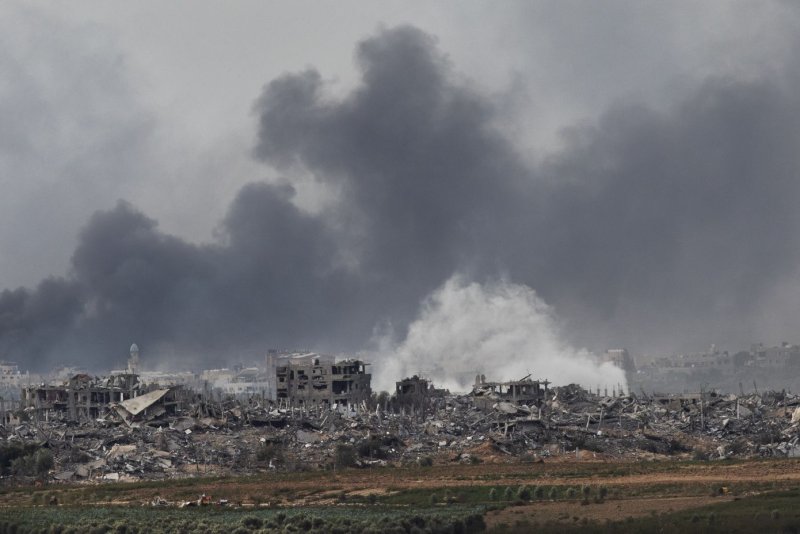Israeli forces have escalated their offensive in Gaza, pushing deep into the northern ruins of Jabalia and advancing across a highway in the south near Rafah, leaving Palestinian civilians scrambling for safety amidst some of the most intense fighting in weeks.

Israeli troops recaptured an area in Jabalia, a sprawling refugee camp in northern Gaza, where they claimed to have dismantled Hamas months ago. Residents fled through rubble-strewn streets, carrying bags of belongings, as tank shells landed in the center of the camp. Health officials reported recovering 20 bodies from overnight airstrikes.
One woman, who did not provide her name, described the chaos, saying, “We don’t know where to go. We have been displaced from one place to the next. We are running in the streets. I saw it with my own eyes. I saw the tank and the bulldozer. It is on that street.”

Meanwhile, in the south, Israeli tanks and troops pushed across a highway into Rafah, near the border with Egypt, closing a main crossing point for aid. The Gaza health authority appealed for international pressure to reopen access via the southern border, warning that the wounded and sick face a “slow death” without treatment, supplies, or the ability to travel.
The first international U.N. fatality in the Gaza war occurred when a U.N.-marked vehicle traveling to a hospital in Rafah struck, bringing the total death toll of U.N. personnel to around 190.

An Israeli airstrike on a house in Al-Nuseirat refugee camp in the central Gaza Strip killed at least eight people and wounded several others, according to Mahmoud Basal, a spokesperson for the Gaza Civil Emergency Service.
The Palestinian death toll in the war has now surpassed 35,000, with 57 killed in the past 24 hours, as reported by Gaza health officials. These figures do not differentiate between civilians and fighters.
Israeli troops aim to eradicate Hamas, but a senior U.S. State Department official stated that Washington does not believe total victory is “likely or possible.” Hamas, committed to Israel’s destruction, launched an attack on Israel on October 7, killing 1,200 people and taking more than 250 hostages, according to Israeli tallies.

Prime Minister Benjamin Netanyahu, attending a Memorial Day ceremony honoring Israel’s fallen soldiers, described the war against Hamas as a struggle to secure Israel’s “existence, liberty, security, and prosperity.”
The assault on Rafah has caused a significant rift between Israel and its main ally, the United States, which has paused some weapons deliveries. The U.S. maintains that Israel must not assault Rafah without a plan to protect civilians, which it has yet to see.
UNRWA estimates that about 360,000 people have fled Rafah since the Israeli military issued its first evacuation order a week ago. However, the designated humanitarian areas lack the necessary infrastructure to support the influx of displaced families.

The conflict has also sparked protests within Israel, with demonstrators blocking aid trucks headed for Gaza at the Tarqumiya checkpoint in the Israeli-occupied West Bank.
As the fighting rages on, the humanitarian crisis in Gaza continues to worsen, with limited access to aid, medical supplies, and fuel. The international community faces mounting pressure to intervene and protect the lives of countless civilians caught in the crossfire of this devastating war.
Based on reporting by Reuters


